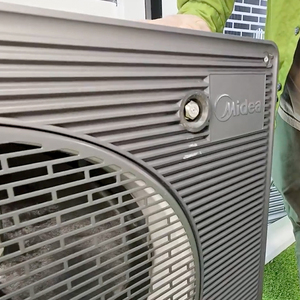Hi,
I was wondering if I could get some opinions on a masonary job. I have a stone stairway outdoors with limestone treads. The limestone treads have come loose and rock a little. They are about 7 years old. I live in the northeast, (New Hampshire), so we see some temperature extremes. I want to re-cement them before putting up railings, and was wondering what the best mortar / cement to use would be.
Thanks in advance.



















Replies
I installed limestone treads and the advice of the stone supplier was to use the same Type S I used for the block that supported the treads. I also cut spacers from pvc pipe to hold the joint height, so that the 200# treads wouldn't squish the mortar out. I'm not claiming that's what you should use, but I did w/ no problems yet. Interested in seeing if any contrary advice turns up.
CLoud,
Type S is a performance standard, based mainly on compressive strength. There are three different mixtures you can use to make Type S mortar (and all other Types, such as M, N, O).
The first kind is a Portland cement/lime, sand mixture. The proportions by volume for Type S PC/Lime mortar are: 1 PC:½ lime:4½ sand. To make this, I assemble 7 buckets the same size. The size of the batch I want to make up determines the size of the buckets. Prior to mixing, I fill one bucket with PC, one half-full of lime, and 4 ½ buckets of sand.
The second kind of Type S mortar is made from pre-blended masonry cement. In this mixture, proprietary ingredients (usually clay, gypsum and crushed limestone) are used in place of lime. To make these mixtures, you mix 1 part Type S masonry cement to three parts sand. In the field, masons often add 17 or 18 shovels of sand per bag.
There has been in the masonry industry a long-standing controversy over the relative merits of PC/Lime mortars and masonry cement mortars. The evidence suggests that PC/Lime mortars have better bond and are more water-resistant than masonry cement mortars. Contractors like the simplicity of masonry cement mortars, however. This has given rise to a third kind of mortar, which is called "mortar cement mortar". This kind of mortar is essentially an attempt by the manufacturers of masonry cement mortars to impose quality control on their product. Mortar Cement mortars meet requirements for bond and water resistantane that are on par with PC/Lime cements. To make this kind of mortar, you simply mix the mortar cement three to one with sand.
Type S mortar from any of these three products should provide plenty of strength and durability. However, a PC/Lime mortar with white Portland cement, would be less likely to stain the limestone.
John, thanks for the elaboration. Good to know their recommendation was on target, even though there are more complete answers to be had.